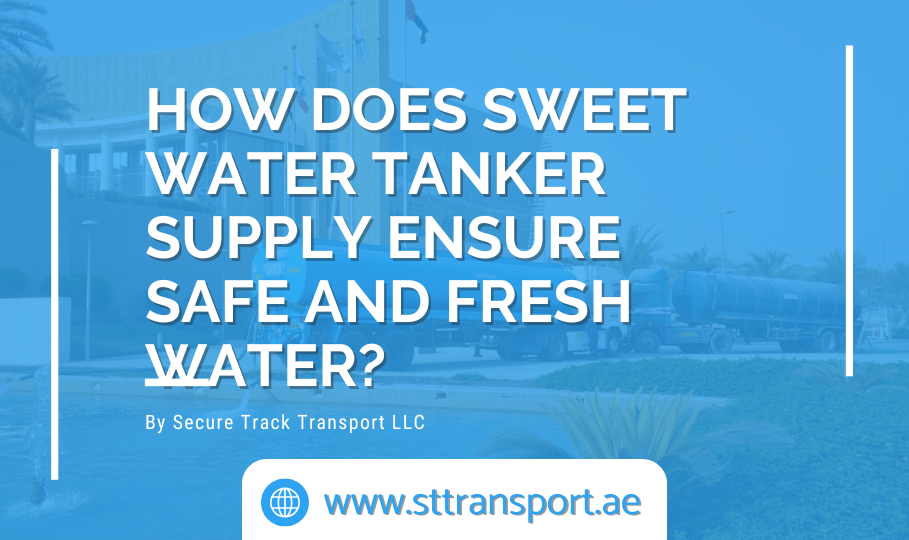Sweet water refers to clean, potable water free from excessive salts and contaminants, making it ideal for drinking and daily use. Unlike hard or saline water, it is soft and suitable for domestic and industrial purposes.
Importance of Sweet Water Supply
In regions with limited or no access to piped municipal water, sweet water tankers in Dubai serve as a lifeline, delivering essential hydration. During droughts, construction booms, or emergencies, tanker supplies step in to meet the increased water demand.
The Process of Sweet Water Tanker Supply
Sweet water is sourced from certified wells or water treatment plants, ensuring it meets local and international health standards.
The water undergoes rigorous filtration and purification processes, such as reverse osmosis or UV treatment, to eliminate impurities.
Tanks used for transportation are regularly cleaned and disinfected to prevent contamination. Think of it like washing your favorite reusable water bottle but on a much larger scale.
Modern tankers are equipped with sensors to monitor temperature, pressure, and contamination risks, ensuring the water remains fresh.
Ensuring Water Safety and Freshness
The water is frequently tested for pH levels, minerals, and microbial content to ensure it remains safe for consumption.
Certified authorities inspect the water at various stages, providing a seal of approval that guarantees its quality.
Strict guidelines ensure the prevention of contamination during storage, handling, and delivery. Every step is monitored to keep the water as pure as it was at the source.
Staff are trained extensively in hygiene and water safety protocols, ensuring consistent delivery of safe water.
Benefits of Using Sweet Water Tanker Services
Sweet water tankers provide a steady supply for households, ensuring there’s no compromise in daily needs like cooking, cleaning, and drinking.
Industries rely on sweet water supply for processes like cooling, cleaning, and manufacturing, where water quality directly impacts the product.
Tanker services are affordable and hassle-free compared to installing complex filtration systems or transporting water manually.
Challenges and Solutions in Sweet Water Supply
Keeping water fresh during transport is challenging, but innovations like insulated tanks and real-time monitoring help mitigate these issues.
Transparent processes, regular audits, and community engagement help build trust and address any concerns about water quality.
The Future of Sweet Water Tanker Services
Expect to see advancements like smart tankers equipped with IoT sensors for real-time quality monitoring, ensuring even higher safety standards.
The future lies in reducing the environmental impact of tanker services, such as using electric vehicles and recycling wastewater.
Conclusion
Sweet water tanker supply is a crucial service ensuring access to safe and fresh water for communities, industries, and households. With rigorous safety measures, modern technology, and a focus on sustainability, this service is not just about delivering water—it’s about delivering life.
FAQs
1. How is sweet water different from regular tap water?
Sweet water is purified and free from salts and contaminants, making it suitable for drinking and specialized applications.
2. Are sweet water tankers safe for drinking water?
Yes, reputable suppliers adhere to strict quality standards and hygiene practices to ensure the water is safe.
3. How often is the water quality tested?
The water is tested at multiple stages, including before storage, during transport, and upon delivery.
4. Can sweet water tankers supply water for large-scale industrial use?
Absolutely! Tankers cater to both small households and large-scale industries, offering customizable supply solutions.
5. What measures ensure the freshness of water during transport?
Insulated tanks, real-time monitoring, and strict hygiene protocols keep the water fresh throughout transit.



